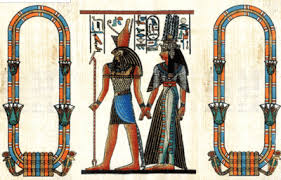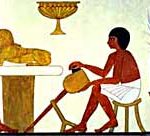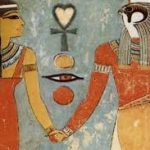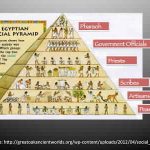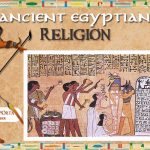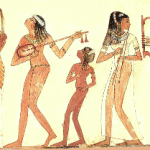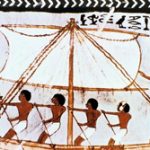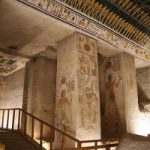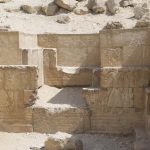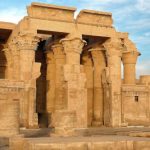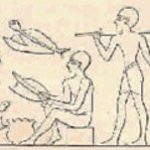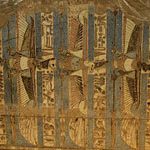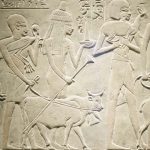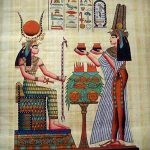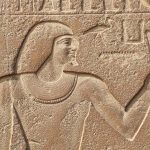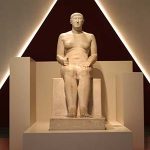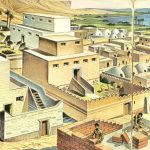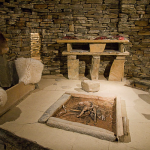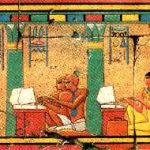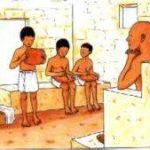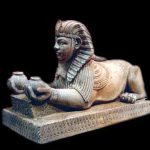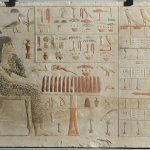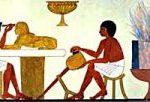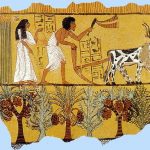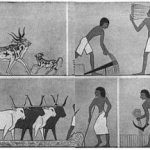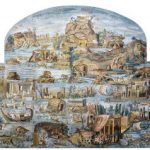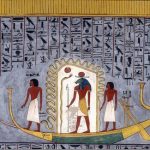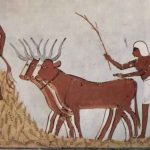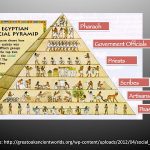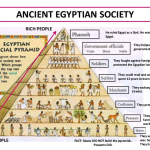Ancient Egyptians believed marriages were eternal and extended into the afterlife. The life expectancy for most men was their thirties while women frequently as young as sixteen died in childbirth or otherwise only lived slightly longer than their husbands.
Thus ancient Egyptians emphasised the importance of choosing a congenial partner in life and death. The idea of one day being reunited with one’s partner in the afterlife was believed to be a source of comfort, easing the pain and grief of their passing. The idea of eternal matrimonial bonds spurred couples to do their best to ensure their life on earth was pleasurable, in order to ensure a similar existence in the afterlife.
Tomb inscriptions and paintings show the married couple revelling in each other’s company in the Elysian Field of Reeds indulging in the same activities they engaged in when they were alive. Hence the ancient Egyptian ideal was of a happy, successful marriage that endured for all eternity.

A core aspect of ancient Egyptian religious belief was the concept that following their death, Osiris would judge the purity of their souls. In order to reach the eternal paradise that was the Egyptian Field of Reeds in the afterlife, however, the deceased had to pass a trial by Osiris just Judge of the Dead and the Egyptian Lord of the Underworld in the Hall of Truth. During this trial, the deceased’s heart would be weighed against the feather of truth. If their lives were judged worthy, they embarked on a perilous journey to the Field of Reeds. Here their earthly lives would continue accompanied by all their loved ones and earthly possessions. However, should their heart be judged unworthy, it was thrown to the floor and devoured by “the gobbler” a ravenous beast known as Amenti, a god with a crocodile’s face, leopard front quarters and the back of a rhinoceros.
Consequently, if the deceased spouse had neglected to lead a life of balance and harmony to honour ma’at, then a reunion with their partner may not occur and the deceased could suffer the damning consequences. Numerous inscriptions, poems and documents survive showing a surviving spouse believed their departed partner was wreaking revenge on them from the afterlife.
Reflecting On The Past
The ancient Egyptians loved life and hoped to continue their enjoyable earthly delights in the afterlife. Marriage was one aspect of their daily lives ancient Egyptians expected to enjoy for all eternally providing one lived a virtuous life during one’s time on earth.


